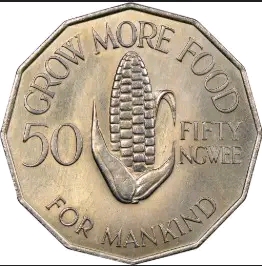By Ollus Ndomu| Lusaka, Zambia
Excitement and debate have gripped Zambia as the Bank of Zambia (BoZ) rolled out new banknotes and coins on Monday, March 31, 2025. The introduction of the new currency has drawn mixed reactions, with some citizens eager to get their hands on the fresh notes while economists weigh the potential economic implications.
Residents of Matero Township in the capital, Lusaka, flocked to local markets early Monday morning to experience the newly issued currency firsthand. Among the most notable changes is the introduction of higher denomination notes—K200 and K500—which the central bank says will facilitate large transactions and improve cash efficiency.
Economist Kelvin Chisanga explained that the move was partly driven by the rapid deterioration of lower-denomination notes, such as the K2, K5, and K10, due to their widespread daily use. “These smaller notes wear out quickly because of overuse, leading to frequent shortages,” Chisanga said. “The introduction of higher-value banknotes will reduce the bulkiness of cash transactions, making it easier for businesses and individuals to carry larger sums.”
However, not everyone is convinced that the new notes will bring only positive changes. Some stakeholders fear the move could contribute to inflation and erode the currency’s value. Gift Mwanza, a concerned citizen, voiced skepticism, warning that introducing higher denominations could trigger price hikes and weaken the kwacha over time.
“The moment you introduce bigger notes, prices tend to adjust upwards because businesses anticipate inflation,” Mwanza said. “If not carefully managed, this could lead to a gradual devaluation of our currency.”
The Bank of Zambia had initially announced plans for the currency overhaul in 2019, but the implementation has taken effect only now. Authorities maintain that the new banknotes will modernize the country’s currency system and enhance financial transactions.
As the public gets accustomed to the new currency, all eyes remain on its long-term impact on Zambia’s economy.


